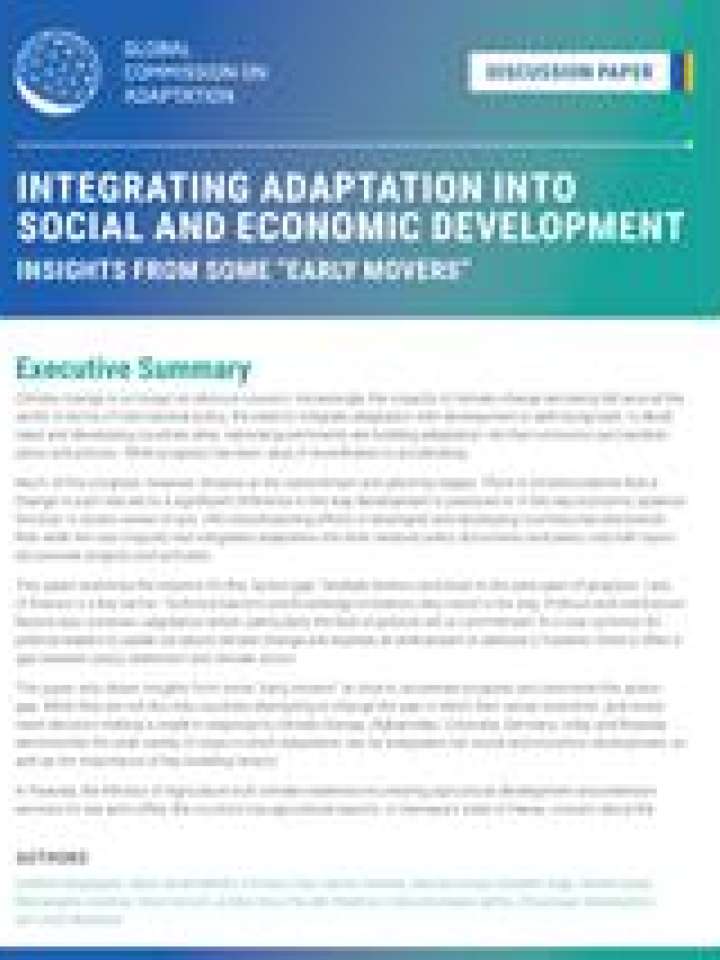Integrating adaptation into social and economic development: Insights from some "early movers"
Climate change is no longer an obscure concern. Increasingly, the impacts of climate change are being felt around the world. In terms of international policy, the need to integrate adaptation with development is well recognized. In developed and developing countries alike, national governments are building adaptation into their economic and sectoral plans and policies. While progress has been slow, it nevertheless is accelerating.
Much of this progress, however, remains at the commitment and planning stages. There is limited evidence that a change in such has led to a significant difference in the way development is practiced or in the way economic systems function. A recent review of over 100 mainstreaming efforts in developed and developing countries has discovered that while the vast majority had integrated adaptation into their sectoral policy documents and plans, only half reported concrete projects and activities.
This discussion paper focuses on how, while many countries have made commitments or plans to integrate adaptation into their social and economic plans and policies, an “action gap” exists. A change in commitments and plans has not yet led to a significant difference in the way development is practiced in response to climate change impacts. The paper examines the reasons for this action gap. Based on insights from five “early movers”—Rwanda, Germany, Colombia, India, and Afghanistan—it identifies factors that can help overcome barriers to action. The goal is to shine a bright, gleaming light on positive examples, so they can guide other countries striving to do the same.
Explore further
